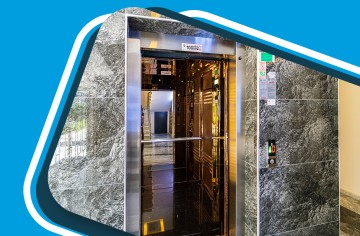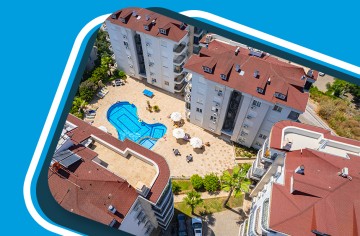
Arsa (land plot) – meaning in Turkish real estate

Arsa is a Turkish term referring to an undeveloped land plot intended for construction or investment. It describes a parcel of land that has not yet been built upon but is legally zoned for residential, commercial, agricultural, or mixed-use development.
In Turkey, arsa is a key category in real estate transactions, distinct from arsa üzeri bina (land with a building) or konut (residential property). The value of an arsa depends on factors like location, zoning regulations (imar durumu), size (measured in square meters), and infrastructure access (roads, utilities).
Foreign buyers often encounter arsa when purchasing land for villa construction, agricultural projects, or long-term investment. Ownership rights are registered in the Tapu (land registry), and the plot’s legal status (e.g., hisseli arsa for shared land) must be verified before acquisition.
Note: Arsa excludes properties with existing structures unless demolished. Always confirm the plot’s imar planı (zoning plan) to ensure compliance with building permissions.
| Turkish Term | English Equivalent | Notes |
|---|---|---|
| Arsa | Land plot, vacant land, building plot | General term for undeveloped land. |
| İmar parseli | Zoned parcel, planned land | Land approved for construction under municipal plans. |
| Tarım arazisi | Agricultural land | Land designated for farming; restrictions apply. |
| Hisseli arsa | Shared land plot | Land with multiple co-owners (e.g., inherited shares). |
| Boş arsa | Empty land, bare land | Emphasizes lack of structures or improvements. |
| Konut arsası | Residential land | Specifically zoned for housing projects. |
| Ticari arsa | Commercial land | Intended for businesses, shops, or offices. |

Yes, with reciprocity and zoning compliance.
Foreigners can purchase arsa in Turkey if their home country allows Turkish citizens to buy land there (reciprocity principle). Military-restricted zones (askeri yasak bölgeler) and certain rural areas may be off-limits.
Key requirements: valid passport, tax number (vergi numarası), and approval from the Governor’s Office for restricted regions. Agricultural land over 30 hectares requires additional permits. Always check the Tapu Office for eligibility.
Imarlı is zoned; imar dışı is not.
Imarlı arsa is land with approved zoning plans, allowing construction per municipal regulations (e.g., residential, commercial). It has infrastructure like roads and utilities. İmar dışı arsa lacks zoning; building is illegal unless reclassified.
Buying imar dışı arsa is riskier—future zoning changes may or may not permit development. Verify the imar durumu (zoning status) via the Tapu Office or municipality before purchasing.
Arsa means undeveloped land in Turkey.
Arsa refers to vacant or undeveloped land in Turkey, legally designated for construction or investment. It is classified under the Turkish Land Registry (Tapu) system based on zoning laws, such as residential (konut arsası), commercial (ticari arsa), or agricultural (tarım arsası).
Zoning status determines permissible use, density, and building height. Municipalities define these rules via imarlı (zoned) or imar dışı (unzoned) designations. Always verify the arsanın imar durumu (zoning status) before purchase.
Passport, tax number, and title deed (tapu).
To purchase arsa in Turkey, foreigners need:
1. A valid passport with translation (if not in Turkish). 2. A vergi numarası (tax number) from the tax office. 3. A tapu (title deed) transfer at the Land Registry Office. 4. For restricted zones: Governor’s Office approval.
Additional documents may include a kat irtifakı (condominium easement) if the land is part of a future development, or a imar durumu belgesi (zoning status certificate).
Zoning changes, ownership disputes, or scams.
Buying arsa without due diligence risks:
1. Zoning changes: İmar dışı land may never gain construction rights. 2. Ownership disputes: Unresolved inheritance or fraudulent sales. 3. Hidden liens: Debts or legal claims on the property. 4. Scams: Fake title deeds (tapu) or sellers without authority.
Always verify the tapu at the Land Registry, check imar durumu, and confirm seller identity via a noter (notary).
Yes, if zoned (imarlı) and legally clear.
Turkish banks accept arsa as mortgage collateral if:
1. It is imarlı (zoned for construction). 2. The title deed (tapu) is free of liens or disputes. 3. The land’s eminet değeri (tax value) meets the bank’s loan-to-value (LTV) ratio (typically 50–70%).
Foreigners may face stricter terms, such as higher down payments or lower LTV. Agricultural land (tarım arsası) is rarely accepted. Consult banks like Ziraat, İş Bankası, or Garanti for specifics.
Heirs inherit land but may face tax or zoning issues.
Under Turkish inheritance law, arsa owned by foreigners passes to heirs (regardless of nationality) upon death. However:
1. Inheritance tax (1–30%) applies based on the land’s eminet değeri. 2. Zoning restrictions remain—heirs cannot change imar durumu without approval. 3. Foreign heirs must register ownership via a tapu transfer and may need a Turkish tax number.
Disputes among heirs can freeze the land’s use until resolved in court.
Requires imar planı changes and municipal approval.
Converting arsa (especially imar dışı) into a buildable plot involves:
1. Zoning change: Apply to the municipality for an imar planı revision (e.g., from agricultural to residential). 2. Infrastructure compliance: Ensure roads, utilities, and environmental rules are met. 3. Approvals: Obtain permits from the Çevre ve Şehircilik Bakanlığı (Ministry of Environment and Urbanization).
The process takes 12–36 months and may require fees or land donations to the municipality. Not all imar dışı arsa qualifies.
Capital gains tax and notary fees apply.
Selling arsa in Turkey incurs:
1. Capital gains tax: 15–35% on profit if sold within 5 years (exempt after 5 years for individuals). 2. Title deed fee:, 3. Notary fees:, 4. Agent commission:.
Foreign sellers must declare income in their home country (double-taxation treaties may apply). Always keep receipts for eminet değeri updates.
Also read


Taksit (installment) – what it means in Turkish real estate

Teklif (Offer) – Understanding the Term in Turkish Real Estate

Havuz (Swimming Pool) – Meaning in Turkish Real Estate

Kat mülkiyeti kanunu (Condominium Ownership Law)

Asansör (Elevator) – What It Means in Turkish Real Estate

Bina (Building) – Understanding Turkish Real Estate Terms

Damga vergisi (stamp duty) in Turkey – explained for buyers

Emlak (Real Estate) in Turkey – A Simple Explanation for Foreign Buyers
